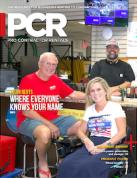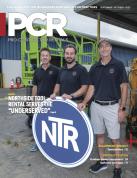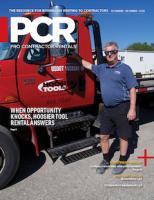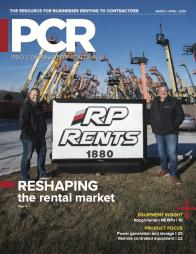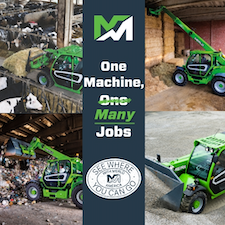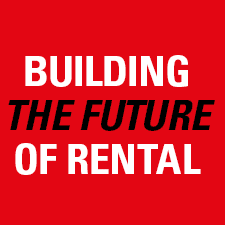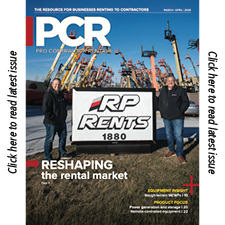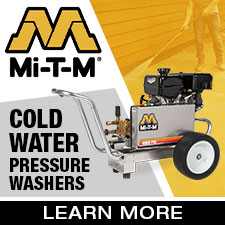Business Management – How much coverage do I need?
Getting the right insurance coverage takes an agency versed in the nuances of the rental business.
by Rachel O’Brien
Many things – and not good things – can happen when renting tools, trailers or equipment.
While it’s never expected that renters will get hurt, or that equipment will break down, be stolen or damaged in a storm, you need to be prepared and insurance is the answer.
Two types of insurance
There is insurance; and then there is rental insurance. Rental centers have different risks than other businesses, so different insurance is needed.
Rental centers cannot buy rental insurance from just any insurance company. Only a few providers sell rental insurance, including the American Rental Association (ARA) and other business insurers with a division dedicated to rental policies. ARA Insurance has a board of directors made up of rental store owners and insurance professionals who understand the needs of the rental industry.
Some offer everything that a rental center would need, but it is also possible to mix and match policies as long as there is no overlap. The more understanding the insurance provider has of the rental industry, the better. Be certain the insurer knows what risks a company takes on during every stage of the rental process as well as the risks from a business perspective – from rental employee injuries to stolen equipment.
Look for an insurance provider that understands construction equipment and trailers, plus the liabilities specific to the rental business. Some providers have requirements to be insured. For example, a physical location or a dollar amount in rental receipts may be required. Coverage requirements and availability may vary by state.
Rental center coverage
Rental centers need coverage for construction equipment and tools while it’s being transported and at the job site, but there are also less obvious needs, such as coverage for data loss and cyberattacks. Coverage provided by rental center insurance carriers includes:
- Auto coverage for trucks and trailers.
- Cyber coverage for restoring data and computer systems as well as third-party liability from unauthorized intrusion of a computer system.
- Data compromise insurance for expenses pertaining to a personal data breach.
- Employment Practices Liability Insurance (EPLI) for defense and damages due to claims made by employees alleging discrimination, wrongful termination, harassment and other issues.
- General and excess liability covers injury or damage resulting from business operations as well as investigations into accidents and defense as needed. It offers coverage above the primary liability limits.
- Specialized coverage for rental or sales inventory, including replacement cost and conversion.
- Property and building coverage.
- Workers’ compensation for wage replacement and medical benefits of employees injured on the job.
Look for comprehensive insurance covering rentals and sales. Be as accurate as possible and do not underinsure or over insure. Check to see if there is a local agent who can assist in every stage from answering questions to filing claims.
Avoid the unexpected
Questions to ask when comparing insurance providers include:
- What is the deductible/premium ratios?
- What defines loss of business?
- Does the plan include replacement cost and no coinsurance?
- When are deductibles applied?
- Does coverage stop and start or are there different coverage levels based on factors such as location?
Another unexpected event may be cancellation of policies or rising costs. There is a history of rental center insurance providers that have ceased to offer coverage or changed pricing based on risk analysis.
Also consider if they have a track record of helping their insureds. What action did the providers take during the COVID-19 pandemic? Do they offer guidance on safety, training and prevention? Risks to people and equipment can be minimized and costs can be avoided with proper knowledge and preparation.
Ways to minimize risk
Safety and prevention minimize the likelihood you’ll have to use insurance. Rental operations can use the National Equipment Registry to list equipment and if equipment is stolen, it alerts law enforcement. This is free for ARA members and if insured by ARA, there is no deductible for that equipment.
Get started
Once a provider has been selected, a list of equipment and its year, make and model will be needed. A change in insurance companies may mean differences in how equipment and property is valued.
A policy will be created and there will be an inspection of the property, which can happen during the coverage period, especially if there is a move or growth of the business. This ensures proper coverage and that safety and preventive measures are met.
Rachel O’Brien is president J&F Reddy Rents Inc. and is the ARA Insurance Board chairperson.
This article originally appeared in the September-October isue of Pr Contracotr Rentals magazine. © Urbain Communications LLC. All rights reserved.




